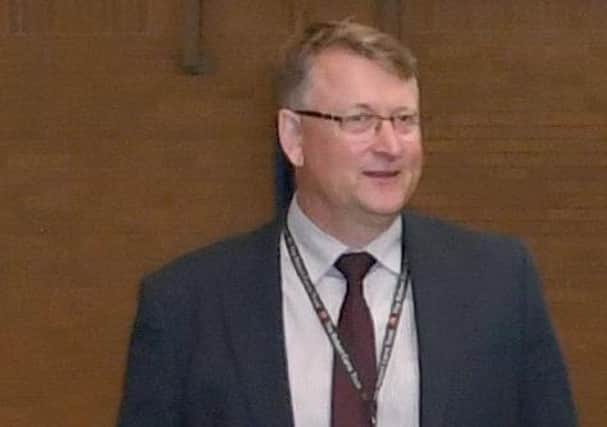Sleaford headteacher angry at critics devaluing his students’ A-level results and at lack of clarity from government over assessments


Nick Law, executive headteacher of the Robert Carre Academy Trust which runs the two grammar schools in town, was angry that the outstanding achievements of his students were being downgraded and politicised.
There were record levels of top grades at A-level on Tuesday nationally, in independent school pupils in England 70% of A-level results were A* or A, compared with 39% for comprehensive pupils.
Advertisement
Hide AdAdvertisement
Hide AdGCSE students have also received another set of record grades, in the second year of Covid disruption to exams, although not as big an increase as last year’s results. Top grades (7/As and above) rose to 28.9% from 26.2% last year, while grades 4/Cs and above rose to 77.1% up from 76.3%.
The former schools Covid recovery leader, Sir Kevan Collins, has claimed the gap in A-level results between state and private school pupils is widening, showing growing inequality. It was also seen regionally, with some parts of the north falling behind. This has been seized upon by the Labour party leadership who are demanding more support for students that most need it and a clearer, standardised system for grading to prevent the rise in top grades.
Mr Law reacted angrily at the accusations of grade inflation and social advantages, saying that Labour’s message was political: “We in our schools have not seen that inequality.” He said his grammar schools are designed to offer the same educational opportunities to able students from all social and financial backgrounds.
“Where we have had disadvantaged students in the last 18 months we have done everything within our ability,” he said. “A guy in Year 11 was given a laptop and 8GB data router to access all his lessons in lockdown, as he said in a survey that he had no internet access.”
Advertisement
Hide AdAdvertisement
Hide AdHe added: “We purchased more computers beyond the government amount awarded and that is how we mitigated between the disadvantaged and the wealthy.”
Mr Law said that GCSE grades this year were closer to last year’s level, while there was an increase in top grades at A-level and a decrease in bottom grades nationally because of the way assessments were set up. “All the kids seem to have gone up one grade,” he said.
However he explained that was mainly due to a narrowing of the subject matter that pupils were tested on due to the pandemic disruption affecting how much could be taught. They were then able to carefully go over everything they expected to find in the exam.
He said it had also been exhausting for students and staff having to work online for so much of the year. “The results are incomparable. These students have been assessed on what they have been taught, not just on the whole curriculum. That is why the results are higher, along with the good work ethic of the students and teachers showing amazing adaptability and over much longer hours.”
Advertisement
Hide AdAdvertisement
Hide AdMr Law could not comment on the high pass rates of private sector schools, as parents pay for results, but his students had worked very hard.
“We have had students that have acted as carers for members of their families at the same time. The kids got what they deserve and teachers did their best. Our assessments were very robust - we have had very few appeals as so many students have got into their universities.”
He now urged the government to give clear guidelines on what to expect for the next year. He said all the headteachers in Sleaford have been annoyed by the “tardiness and inconsistency” of the government about how they will assess the students next year.
“We will be arriving in September not knowing how we will assess them. The government have not really thought clearly about the students, teachers and parents,” said Mr Law.
Advertisement
Hide AdAdvertisement
Hide AdThere have been some suggestions in government that they may switch and fine tune the grading system to numbers instead of letters at A-level, as has been done at GCSE, but this has not been met with enthusiasm by teaching leaders who claim it must not be rushed.
The Department of Education says there has been an increase in top grades for students from all backgrounds, and the relative increase of the proportion of As and above on last year is no higher in independent schools than in academies.
Ofqual reports that the assessment approach this year has helped prevent gaps widening.